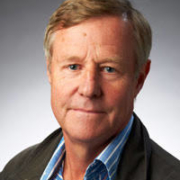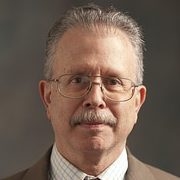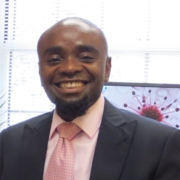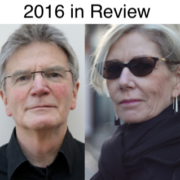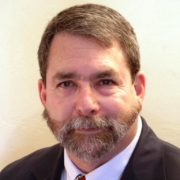Steven Klees
The Conscience of a Progressive
My guest today is Steve Klees, professor of international education policy and a distinguished scholar teacher at the University of Maryland.
Steve has a new book entitled The Conscience of a Progressive, which draws on his 45 years of work around the world as an economist and international educator. In the book he compares conservative, liberal, and progressive views on a wide range of social issues.
Steve’s critique goes to the heart of neoliberal capitalism, pushing us to confront the intersectional challenges of gender, class, race, ethnicity, LGBTQ rights, and disability.
Citation: Klees, Steve, interview with Will Brehm, FreshEd, 222, podcast audio, November 23, 2020. https://freshedpodcast.com/steveklees-2/
Will Brehm 1:13
Steve Klees, welcome back to FreshEd.
Steve Klees 1:15
Thank you. It’s a pleasure to be back.
Will Brehm 1:17
So, congratulations on your new book. And in it, you call yourself a progressive political economist. What does that mean to you?
Steve Klees 1:25
Well, political economy is a contested term. It used to be all social theory more than a century ago was political economy. Now, the left and the right, claim it both. I use it in the left sense. That’s why I sometimes put progressive in front of it. But I just use political economy as the left of center version of it, which is an alternative to the neoclassical economic story of the efficiency and equity of a competitive capitalist market system. And the alternative story argues that capitalism and other world-system structures are fundamentally inequitable and even inefficient in their own terms.
Will Brehm 2:12
What would that mean? Could you give an example of how they’re inequitable in their own terms?
Steve Klees 2:17
Well, they’re inequitable. I mean, we live in a capitalist world system that is incredibly inequitable. I mean, we have half the population of the world is basically barely surviving and/or in precarious situation. And there’s nothing equitable or efficient about a world like that. So, it’s just obviously inefficient and inequitable.
Will Brehm 2:44
So, when did you realize that the sort of, you know, neoclassical story or the traditional form of economics, or call it political economics was flawed? When did you actually sort of recognize that? Was there a moment in your career?
Steve Klees 3:02
You know, I went to Stanford University. I got a very good elite, neoclassical economics education, but it was the late 1960s and early 1970s. So, there was a lot of social turmoil, a lot of social critique. I was based in a business school. And even there, there was a lot of critique. I remember one day in like my third year of graduate school that my class talked about what’s called “second best theory,” that if we don’t live in the first best world, of what neoclassical economists called perfect competition. If there is one monopoly and otherwise, highly competitive system, or perfectly competitive system, that’s the second-best world, just one monopoly. And if that’s true, none of the benefits they’ve been teaching me for three years held. None! The efficiency of the market system, the idea that everything was sold at the least possible price. So, it was startling, actually, that one class. And it’s been that way, actually, since. That neoclassical economics is a bankrupt story.
Will Brehm 4:23
It’s bankrupt, but it also has so much power, right? I mean, I would imagine even today in economics departments, perhaps even at Stanford Business School, a lot of neoclassical economics is still taught.
Steve Klees 4:35
It is the dominant story in the world in economics. And it’s more than economics. I mean, this permeates political views. It permeates common sense. The idea that a competitive market system is what Margaret Thatcher called “TINA,” “There Is No Alternative” to that. So, it’s pervasive, yet it’s a bankrupt story. If you look closely at it -if you ever ask an economist to try and explain efficiency to you, your eyes will start to glaze over. And it’s not a tenable theory. It’s hard to believe that so many very intelligent people hang on to it so strongly.
Will Brehm 5:19
So, if neoclassical economics focuses on things like efficiency, what would a progressive political economist focus on instead?
Steve Klees 5:27
Lots of things. I mean, for neoclassical economists, the world is divided into efficiency and equity. They’re separable concepts. For political economists, every decision involves equity or inequity. But for a political economist, there are so many more issues of environmental destruction being one major one that we’re facing right now. Poverty and inequality, obviously, issues of patriarchy, of racial discrimination, of gender discrimination, of ableism, and discriminating by ability. So, all sorts of issues are at the core to me of what I mean by a political economy perspective.
Will Brehm 6:15
Right. So, it seems like it’s very intersectional in a way where it’s looking at such an array of different issues and sort of social structures that exists to understand the way in which politics and economics work sort of in the “real world,” so to speak.
Steve Klees 6:32
I mean, political economy has a history of focusing on class, but it’s become very intersectional, as you say. And so, class, race, gender, ability, disability are all essential parts of a political economy perspective today.
Will Brehm 6:51
And you mentioned earlier, you know, the system of capitalism, which is obviously a major focus of political economists. And a lot of the sort of inequality that we can see today does come from the capitalist system, of course, other systems as well, like patriarchy and racism, and ableism, as you were saying. Is it possible, do you think, to begin to tame capitalism? Is that sort of one of the objectives of a progressive political, economic standpoint or perspective?
Steve Klees 7:19
It’s a great question. And, you know, I preface that by not being clairvoyant, but I don’t think so. I mean, the neoliberal version of capitalism has to go. Neoliberalism is what I call the conservative version of neoclassical economics. That basically is a market fundamentalist view of the world, that government is inept, that government is corrupt, that government is inefficient, but liberal capitalism of the 60s and 70s, or go back to the 30s or different eras in different parts of the world had better rhetoric, but the world was still very unequal, poverty and inequality were rampant, environmental destruction was rampant. I mean, there is some political economists who look towards a more liberal neoclassical economics as progress, as at least a step back from where we are for the last 40 years. But basically, I don’t think so. Basically, I think that we need to find alternatives to capitalism.
Will Brehm 8:29
So, in your book, you make a big distinction between liberal and progressive views. And so, the progressive side would actually be saying there needs to be alternatives, rather than this liberal sort of accommodation almost.
Steve Klees 8:47
Yeah, the idea that we can tame it, as you said, to work in the social interest -back to I’m not clairvoyant. I mean, European capitalism, in many countries, is a better form than we have in the US, but we’re in a world system that is incredibly unequal, incredibly unfair, incredibly destructive. And I think we need to think of alternatives.
Will Brehm 9:11
Let’s turn to education because this is obviously where you have spent so much of your career working on and in many different countries. And in your book, you raise this really interesting sort of phenomenon, or I should say, this historical moment where, you know, the international community has since the 1960s, sort of tried to focus on achieving universal primary education. And they ended up creating all of these global goals from Education for All (EFA) and the Millennium Development Goals to the Sustainable Development Goals today. And yet, we haven’t achieved it. The world has not been able to achieve it. I mean, from your reading of this history and your work in education, why hasn’t the international community been able to achieve universal primary education?
Steve Klees 10:00
You know, there are people who argue the glass is half full, right? That we’ve been making progress. But universal primary education, one of the most basic goals, we’ve been promising that since the 1960s. And you know, EFA had it as a goal, the Millennium Development Goals (MDGs), the Sustainable Development Goals has it as a goal. And it’s not going to be achieved by 2030, which is the endpoint to the Sustainable Development Goals. And people argue it’s not going to be achieved till 2080 if businesses as usual. So, that’s 100 years, and not clear that it’ll happen then. So, to me, you know, this should be a global embarrassment. It’s not a glass half full. And I mean, the reason for it is complicated, but it boils down we are not serious about doing it. A great comparative educator, Hans Weiler, talked about compensatory legitimation, the idea that we’re living in such an unequal world that to give it legitimacy, we have to try to compensate for it. We have to show that we’re trying to do something. So, we have EFA, we have the MDGs, we have the SDGs, we have a lot of effort being devoted to this. And as well-intentioned effort, there is no conspiracy here. But it seems as if just the effort alone is sufficient to be compensating for this system, and still shoring it up and legitimating it. You know, the main thing, we just haven’t put in the resources. That’s partly political will; it’s partly resources. But we’ve put in a pittance over decades. In terms of education, somebody calculated that we’re putting in like $8 per student over the developing world with all the billions of dollars of assistance, so-called assistance, that we’re giving. It’s an embarrassment, it’s criminal, it’s neglect.
Will Brehm 12:10
It’s an interesting phenomenon because, you know, there is a lot of goodwill, a lot of attention, a lot of rhetoric that makes the focus on education development and sort of achieving that very sort of specific goal of universal primary education. It’s so commonplace, at least the rhetoric, and you know, so many governments talk about the aid that they’re giving to different countries. And the UN, of course, is filled with a lot of this rhetoric. But yet the inability to achieve that goal over those decades, as you’re saying is, it makes me wonder if, you know, the reason there’s this inequality, it’s actually inherent in the global system of capitalism as we know it. And it is sort of, you know, until you get down to that structural level of the global system, we are just sort of tinkering around the edges with technical solutions to managing education systems.
Steve Klees 13:09
Conservatives see us as making progress. They’re less poor than ever before, right? And the poor aren’t as poor as they’re made out to be. And things are improving over time. But how much time? And are they improving? And liberals argue that things are unequal, and there are poor, and we need government programs to ameliorate things. But we’ve been trying that for decades and decades and look how the world is. And so, for a political economist, for a progressive, I use the terms interchangeably in my book; in a way, the situation of poverty and inequality in the world today is sort of a logical outcome of successful system functioning and needs fundamental change.
Will Brehm 13:58
Yeah, right. So, this inequality that you see is actually what should be produced in the system in which we operate.
Steve Klees 14:05
Yeah, it is a logical consequence of the system working.
Will Brehm 14:09
Right. I mean, and that’s quite depressing in a way, right? Because once you recognize that, then you have to actually change the approach that you take in how you address inequality.
Steve Klees 14:19
Yes. It’s not simply a well-intentioned search for good public programs.
Will Brehm 14:26
What would it take? What would it look like?
Steve Klees 14:27
The big question. I teach a course called alternative education, alternative development, that really tries to look at what people are saying about alternatives. And, you know, contrary to Margaret Thatcher’s, TINA, the acronym is TAPAS ‘There Are Plenty of Alternatives’ out there. And there’s groups like ‘The Next System Project,’ which, you know, google ‘The Next System Project,’ it’s a very interesting look at what are the alternatives out there. There’s ‘Progressive International,’ another group bringing progressives together. There’s ‘Global Tapestry for Alternatives.’ There’s lots of different things happening at a local community level, at a grassroots level that is trying to live differently. It’s hard because we’re all embedded in this market capitalist system.
Will Brehm 15:21
It makes me wonder, is the moment of the Coronavirus, is this pandemic the world is experiencing and to different effects in different countries, of course, but, you know, could this be the catalyst where some of these alternatives actually take hold? Or is that me being a bit too “glass is half full” optimistic?
Steve Klees 15:41
Yeah, I’m an optimist, basically. And the pandemic is likely to be a disaster for education and for all social services. But there’s within it the possibilities of something different. I mean, I take three positive lessons from the pandemic. One is that contrary to neoliberalism, government works. Government can make a big difference. Government is essential when we have crises. We’re knee-deep in crises, not just the pandemic. So, government can work. You know, secondly, money can be found. I mean, you know, we found money very quickly around the world to deal with this crisis. And third, we can make big changes quickly. I mean, it takes a crisis to do so. But, you know, we’ve got a climate change crisis, an environmental crisis, an inequality crisis, a social justice crisis, a racism crisis. We’re in the midst of these multiple crises, and there are ways out.
Will Brehm 16:50
It is interesting, because, you know, the government works -I mean, correct me if I’m wrong, but this might be more of the liberal position, right? That government institutions can actually address social issues whereas the conservative side would be more like government just gets in the way, they should reduce in size.
Steve Klees 17:08
Yeah. I mean, the Washington Consensus neoliberal view that brought us an attack on government really, under the last 40 years, has said that government is totally incompetent, inefficient, corrupt, and liberals have bought into that to some extent. The push towards privatization generally, and in education, is part of that. But from progressive and some liberal views, government is essential to dealing with crises. I mean, the government is our collective ability to work together to do something. You know, our problems can’t be solved by an atomistic market. They have to be solved by us getting together and working together at local, regional, global levels.
Will Brehm 17:55
And you are someone that has worked, you know, at these different levels over your long career. So, what was it like to work in different institutions in education and international development? Because I would imagine you must have struggled a little bit. And maybe this is me projecting, but I would imagine that your progressive views clashed with some of the institutions, say, the World Bank with which you worked with over time. I mean, so I’m almost asking for myself: how did you manage and balance your own values and interests and the way you see the world with institutions who saw almost diametrically opposed?
Steve Klees 18:42
Great question, and one that faces all of us in some ways that have a share of critical perspective. You’re always constrained-whatever environment, even as a faculty member with tenure. You’re always constrained in terms of what you can say and what you can do, and how best to make a case. But you’re more constrained in certain situations, right? So, I mean, I’ve worked a lot for USAID throughout my career. But I always found that there was space. So, I mean, even in the 70s, when I was doing work, and 80s, when I was doing work evaluating projects. I was able to talk about a neoclassical view, and I don’t know if I used the term neo-Marxist view, but I might have even in USAID documents, but it certainly was a critical perspective. And they hired me again. You know, it’s possible to find space in these agencies. I’ve done very little work for the World Bank. My two main projects for the World Bank were a study of public sector review. I was the education person in Nicaragua, and this was in the 1980s, and they wanted to emphasize privatization, cutting funds. And Nicaragua is desperate. It was after the war. And I said they needed more resources at all levels. And they wrote back to me on my report, “How about, you have to think about this, this and this,” and I just made my report stronger, and eventually what they did is they threw my report away and hired a more malleable consultant to do it. And the other big project I had for the World Bank was doing a paper on alternatives. It was part of a higher education group at the Bank in the 90s that commissioned about five critical papers, and they closed the division. I don’t know if it was caused by the papers or the critique of higher education as a major investment area. But what I’ve learned in working for these agencies, and I’ve learned this generally, is that you’re always taking sides, even if you don’t do so explicitly. So, when I work for these agencies, I try not to impose Northern views in Southern countries. But there are people everywhere who have a critical view. And so, I find people when I present an alternative perspective at a USAID project, or even a UNICEF or UNESCO project; people thank you for opening the door for alternative views locally.
Will Brehm 21:37
People want that conversation.
Steve Klees 21:39
Yeah. People want that conversation, and there’s generally space in all agencies to have a counter-hegemonic view.
Will Brehm 21:48
Yeah. I mean, it does beg the question: at what point do these agencies actually change to embrace that counter-hegemonic view? Is that even possible? Like, is it possible for the World Bank or USAID to not simply allow dissenting voices inside but give power to those dissenting voices in the way that institution operates? Is that possible? Or, you know, I mean, I don’t really know. What’s your opinion?
Steve Klees 22:19
Like I said before, I’m an optimist. I don’t know what it’s going to take, but neoliberalism -I mean, most of your listeners, neoliberalism has been their whole life. It was not the whole life. This is a short term in human history of 40 years. So, the liberal views before that, I mean, the World Bank, pushed for major investments in the 60s and 70s, pushed for major investments in health and education, and argued for progressive income taxes to finance them. There were economists at the World Bank who had that view. You know, I think we’re at a stage now where we need to shut down neoliberalism. I’ve been calling for -there was a ’50 Years is Enough’ campaign about, we’ve had enough of the World Bank and the IMF and the Bretton Woods institutions, and it’s been 75 years and 75 years is enough. We need a new Bretton Woods Conference; we need to rethink those institutions; we need to reformulate them from the ground up. I don’t have a lot of hope for small changes within leading to large changes, but it’s possible. You know, if Bernie Sanders had run and won the election, and you know, as a democratic socialist, he got very high percentages of the popular vote when they put him against Trump or other people. So, you know, if you had a president like that setting up a new president of the World Bank, it’s possible you could have internal reforms that would bring it back to its more liberal origins. I still think you need to reformulate the whole institution. It’s, you know, $1, 1 vote. It’s the global North giving so-called help to the global South when what’s needed are reparations for hundreds of years of destruction, unfair trade, colonialism, neocolonialism; we need new institutions.
Will Brehm 24:26
And I think your book gives a very nice overview of a different way of thinking. And it’s almost like I hope future development workers in education and beyond can read it and sort of reimagine a way to see the world that isn’t that sort of neoclassical or neoliberal viewpoint, which is so dominant. So, I just want to say thank you for writing the book and sort of pulling together your long and esteemed career and experiences and distilling it into a book that’s really meant for the public. So, thank you for writing it. And Steve Klees, thank you so much for joining FreshEd again, and it’s always a pleasure to talk to you.
Steve Klees 25:08
Well, it’s been a pleasure to talk to you, Will, and I appreciate the opportunity.
Want to help translate this show? Please contact info@freshedpodcast.com
Related Publication
The Conscience of a Progressive
Beyond neoliberalism: Reflections on capitalism and education
The World Bank and education: Critiques and alternatives
A quarter century of neoliberal thinking in education: Misleading analyses and failed policies
Aid, development, and education
Neoliberalism and education revisited
Mentioned
Education for All 2000-2015: Achievements and challenges
Related Resources
What is this school called Neoclassical economics
Capitalism in the classical and high liberal traditions
A variety of capitalism…with Chinese characteristics?
Whose education for all? The recolonization of the African mind
Constructing education for development: International organizations and education for all
Alternative/Progressive Groups
Global Tapestry for Alternatives
Have useful resources related to this show? Please send them to info@freshedpodcast.com


